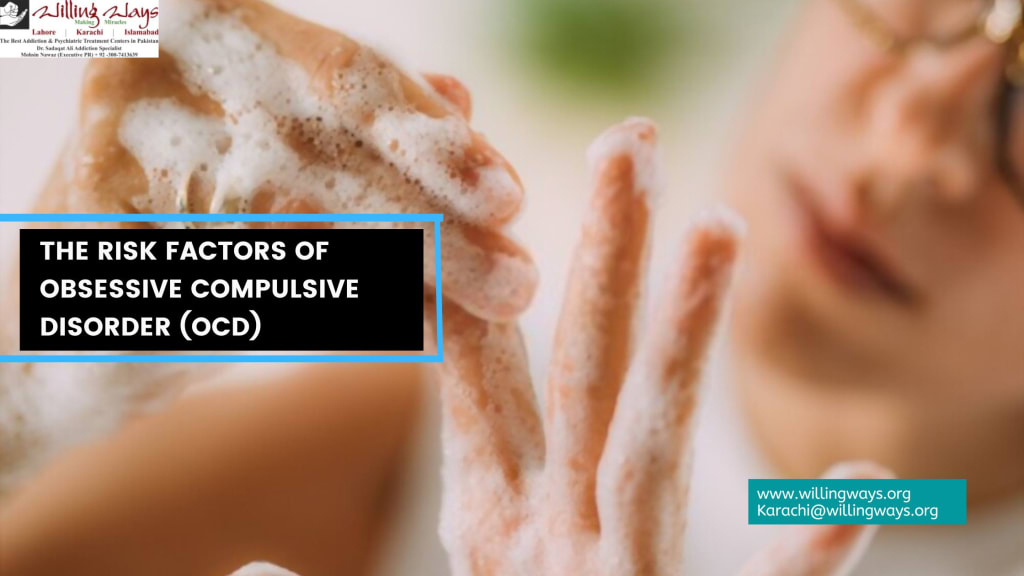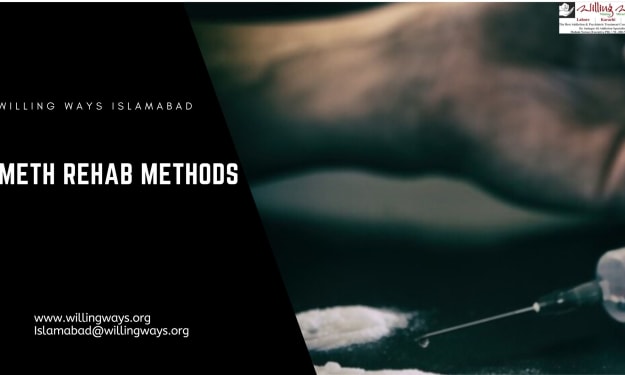The Risk Factors of Obsessive Compulsive Disorder (OCD)
The increased likelihood of an individual developing Obsessive Compulsive Disorder (OCD), an anxiety-based disorder, is affected by several risk factors.

The exact cause of this mental disorder at the best addiction treatment center in Karachi is yet to be determined by medical experts specializing in neurology, psychiatry, psychology, and general medicine. However, several theories that might be potential triggers and how to deal with OCD Nervousness in the Workplace for the OCD disorder have been developed. OCD risk factors will be highlighted in this mental health guide to provide an understanding of this disorder.
Factors that affect the likelihood of developing OCD are outlined below: -
Basic Statistics
Understanding the basic statistics regarding OCD is essential before looking further into the theories behind this mental disorder. In the United States, it is estimated that around a quarter of the population suffers from mild to severe anxiety once in their lifetime. Obsessive compulsive disorder is categorized as a type of anxiety. It is also known as an anxiety disorder. Mental health experts established that anxiety disorders are much more common than other psychiatric conditions. However, the anxiety-based disorder is lower than a quarter of the nation's standard anxiety rate.
Genetics
It has been established that when an individual suffers from OCD, their children or the next generation will likely experience the same disorder. Medical experts, however, do not conclude that genetics will contribute to the triggering of OCD. It is believed that the triggering of this mental health disorder among patients involves a correlation between genetics with other risk factors. The genes specifically linked to this disorder have still not been identified. This is mainly because patients potentially develop this condition due to behaviors learned during their lifetime.
Personality
An individual personality might trigger OCD. Individuals who are not able or less able to react to stress productively, or have an intolerance or a low tolerance for ambiguity or uncertainty, and those who have tendencies to be hypersensitive when handling with his or their moods and emotions are more prone to suffer from OCD compared to those having other types of personalities. This is one of the reasons why many doctors choose cognitive behavior therapy and prescription medication to treat this condition.
Biochemical Imbalances
Biochemical imbalances occur in individuals developing OCD. In most cases, inconsistencies in the levels of nutrients, minerals, and hormones occur in the physiology of OCD patients. People with OCD also tend to have lower levels of serotonin. Doctors usually prescribe prescribed medications that will increase the level of serotonin to treat OCD patients.
If you have OCD, you should know the factors behind this condition besides steps that you should take to face the challenges when dealing with this condition throughout your lifetime.
Ayurvedic Herbal Treatment for Obsessive Compulsive Disorder
Obsessive Compulsive Disorder is a form of anxiety disorder during which an individual might suffer from unwanted thoughts and fears which cause him to perform actions that are sometimes meaningless and, most of the time, unwanted. An individual suffering from OCD would try to stop the obsessions he is facing, but he wouldn't be successful in doing this.
Most of the time, Obsessive Compulsive Disorder targets issues and reasons that make a person develop a constant behavior that affects his daily life. Several factors, such as Genetics, environment, and low brain neurotransmitter levels, are considered to be significant reasons for OCD. History of OCD in the family stresses life and pregnancy are also one of the reasons responsible for OCD.
Cognitive Behavioural Therapy (CBT) is the best treatment for OCD in people suffering from childhood and adulthood problems. The 'Exposure and Response Prevention' step of CBT assists a person in managing the obsessions and compulsions one faces and helps live an improved life. An additional therapy for quicker response is the Ayurvedic treatment which can accelerate the treatment process. People who seem resistant to Cognitive Behavioural Therapy have also been found to be treated with the help of this treatment.
About the Creator
Willing Ways
Willing Ways is the Best addiction treatment center in Pakistan. We are the pioneer in drugs & alcohol treatment centers with outstanding services and a history of 43 years. We deliver quality writing that is beneficial for you.






Comments
There are no comments for this story
Be the first to respond and start the conversation.